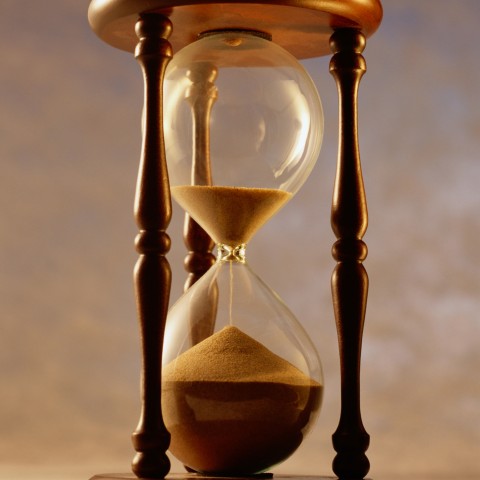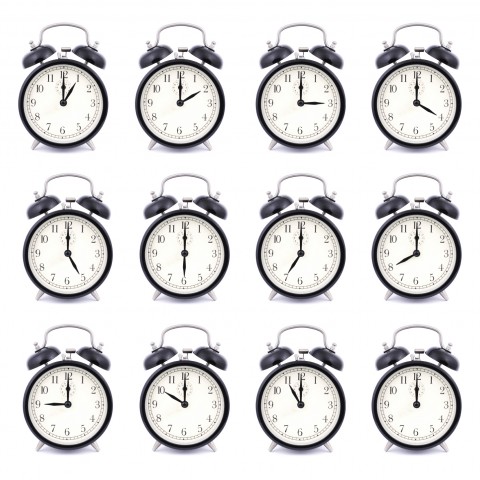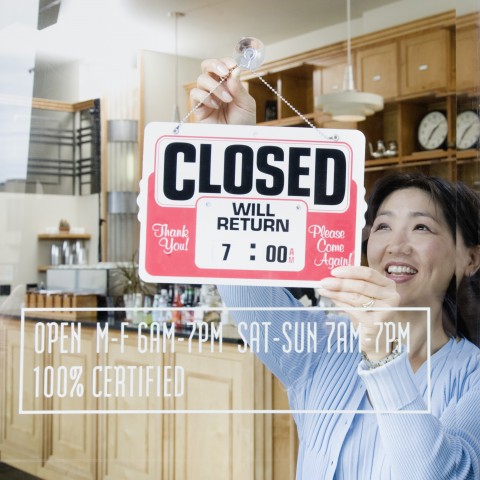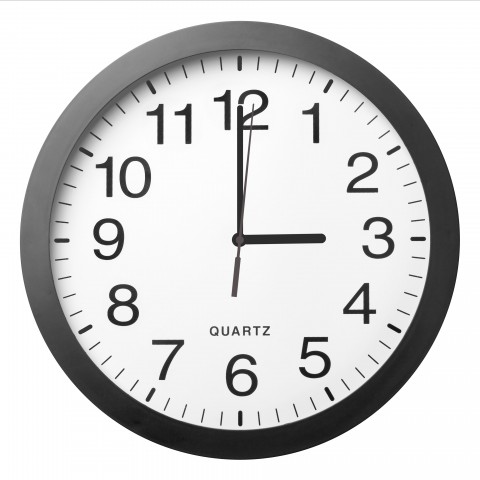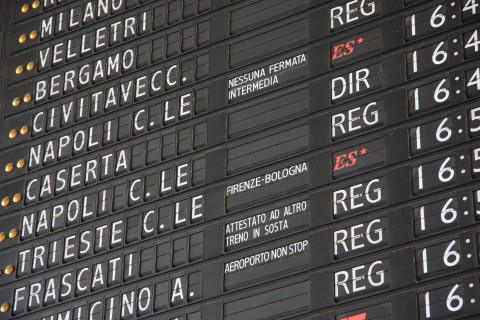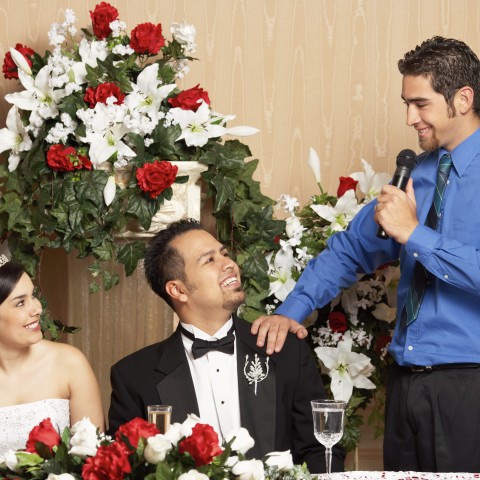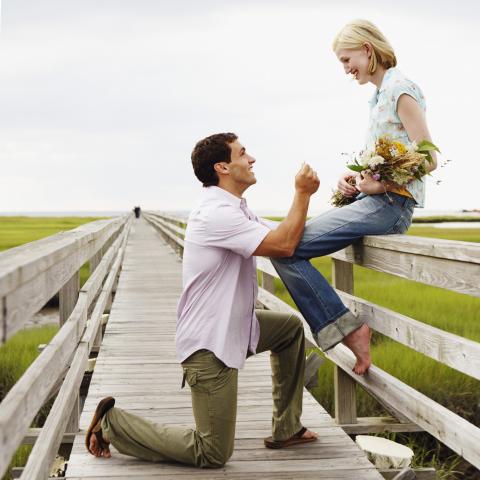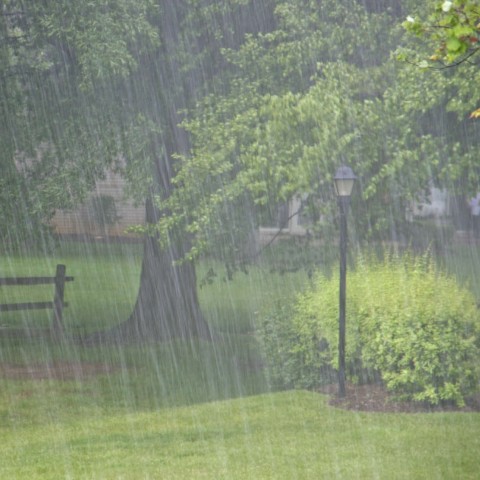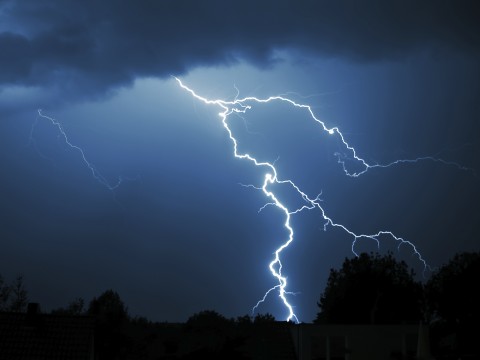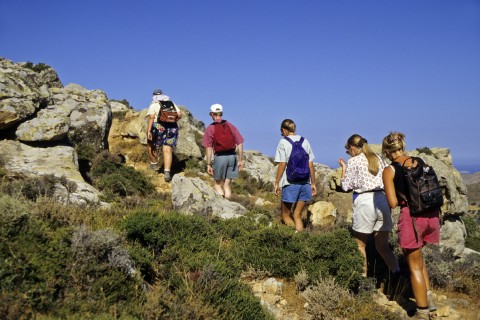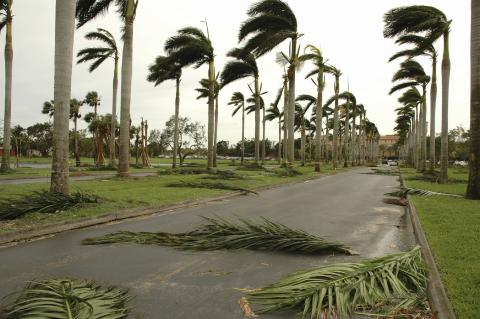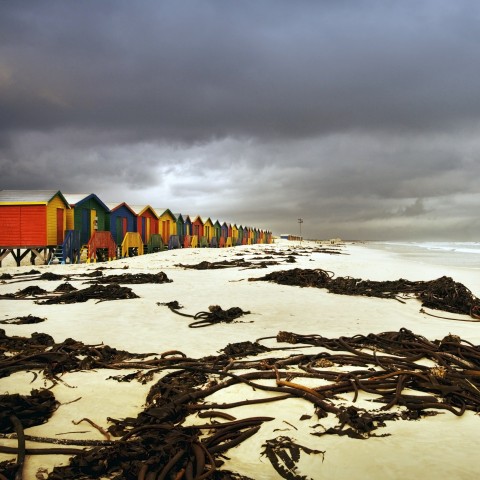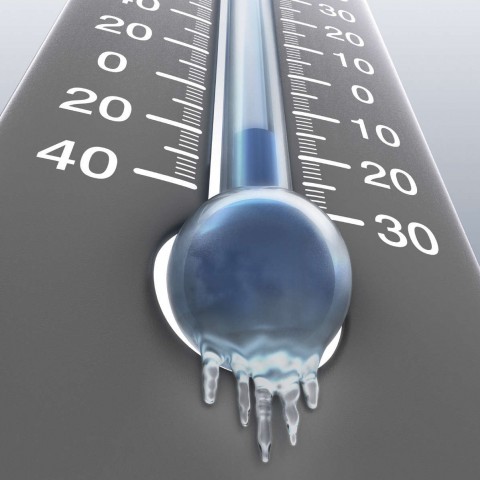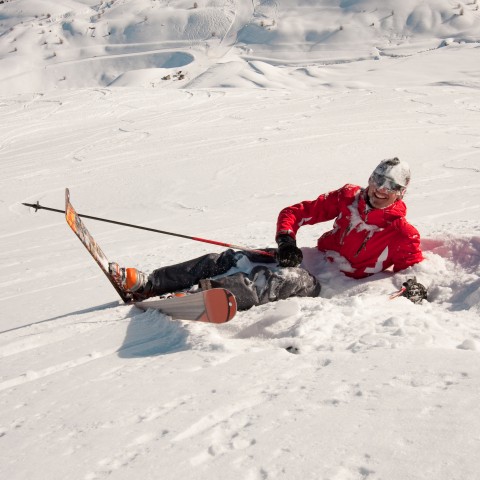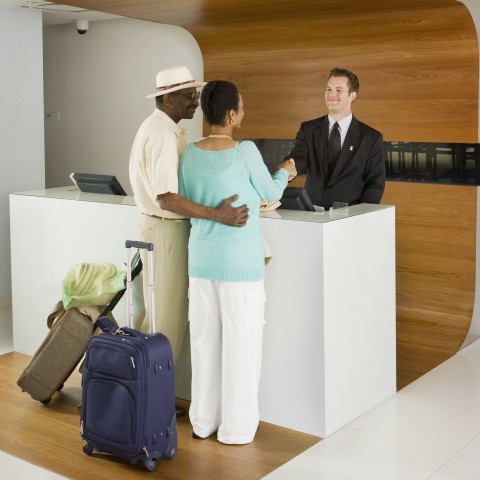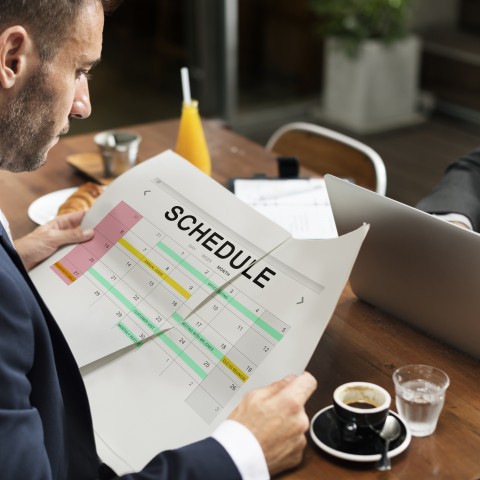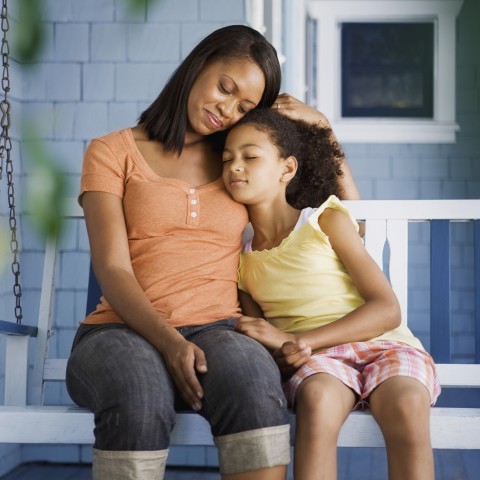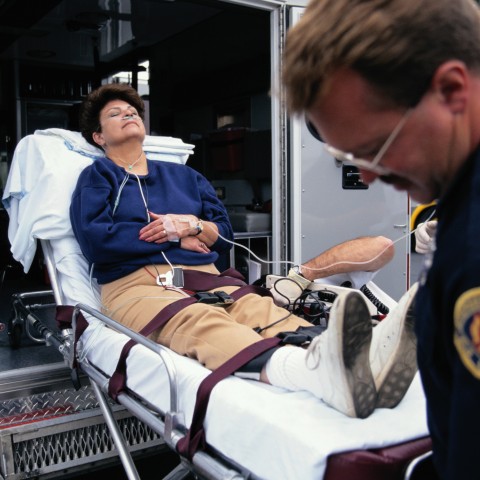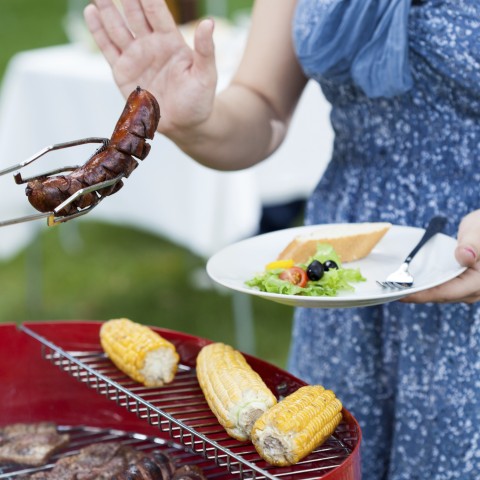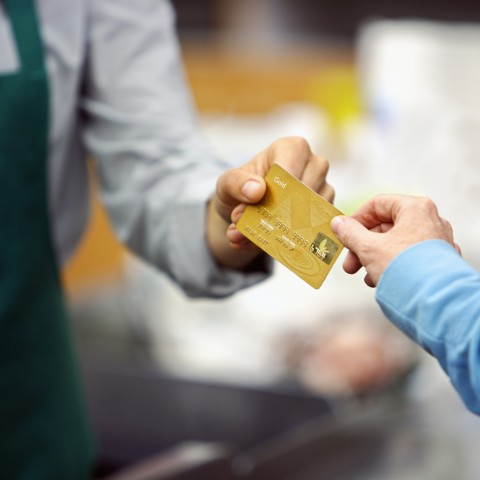
You’re learning to speak Danish, and it’s going well. Your confidence is growing! So much so that you feel ready to share your experiences on social media—in Danish.
At Learn Danish, we make this easy for you to get it right the first time. Post like a boss with these phrases and guidelines, and get to practice your Danish in the process.
 [public_ui]
[public_ui]
1. Talking about Your Restaurant Visit in Danish
Eating out is fun, and often an experience you’d like to share. Take a pic, and start a conversation on social media in Danish. Your friend will be amazed by your language skills…and perhaps your taste in restaurants!
Hans eats at a restaurant with his friends, posts an image of the group eating, and leaves this comment:

POST
Let’s break down Hans’s post.
Vi er godt i gang med hovedretten. Mums mums!
“We are well underway with the main course. Yum yum!”
1- Vi er godt i gang med hovedretten.
First is an expression meaning “We are well underway with the main course.”
You can also replace “main course” with other nouns to make it clear that you’ve been busy with it for some time.
2- Mums mums!
Then comes the phrase – “Yum yum!”
Use this phrase when expressing that something is tasty, such as food or drinks. Mostly children use this phrase, so if you’re an adult saying it to another adult, it’s clear that you’re in a playful, humorous mood. It is inadvisable that you use this in serious conversation, though. You might furthermore be mistaken for trying to make people jealous if you post a picture of your food online, so be careful.
COMMENTS
In response, Hans’ friends leave some comments.
1- Er da slet ikke misundelig…
His girlfriend, Johanne, uses an expression meaning – “Not envious at all…”
This is an ironic or slightly sarcastic or ironic comment, with the intent to joke a bit. It means that you are actually envious!
2- Hvor var min invitation?
His college friend, Isak, uses an expression meaning – “Where was my invitation?”
This is yet another way to express that you’re envious of whatever the poster is experiencing, and it indicates that you feel a bit left out. If you know the people well, it will be clear to them whether or not you’re seriously complaining, or just having some fun with them.
3- Det ser hyggeligt ud.
His high school friend, Frederikke, uses an expression meaning – “It looks cozy.”
Use this to express that you think the scene looks pleasant and comfortable.
4- Velbekomme!
His neighbor, Gitte, uses an expression meaning – “Bon appetit!”
This is a loan-expression from French that means: “Eat well!” It is commonly used to wish someone a tasty meal in many Germanic languages.
VOCABULARY
Find below the key vocabulary for this lesson:
hovedret: “main course”
slet ikke: “not at all”
misundelig: “envious”
invitation: “invitation”
se ud: “to look”
hyggelig: “cozy, enjoyable, homely”
velbekomme: “bon appetit”
So, let’s practice a bit. If a friend posted something about having dinner with friends, which phrase would you use?
Now go visit a Danish restaurant, and wow the staff with your language skills!
2. Post about Your Mall Visit in Danish
Another super topic for social media is shopping—everybody does it, most everybody loves it, and your friends on social media are probably curious about your shopping sprees! Share these Danish phrases in posts when you visit a mall.
Johanne shop with her sister at the mall, posts an image of the two of them in a shop, and leaves this comment:

POST
Let’s break down Johanne’s post.
På shoppetur med hende her inden hun rejser. Der skal shoppes amok!
“On a shopping spree with this one before she leaves. There will be crazy shopping!”
1- På shoppetur med hende her inden hun rejser.
First is an expression meaning “On a shopping spree with this one before she leaves.”
Use this phrase when you’re on an outing with a woman who is important to you, but whose name you do not wish to mention. The context here is that the lady will be leaving soon somewhere, which is why the spree is happening in the first place.
2- Der skal shoppes amok!
Then comes the phrase – “There shall be crazy shopping!”
Use phrase to emphasize that you will probably return home with several bags full of new things. The phrase often appears in its imperative form during times of big sales.
COMMENTS
In response, Johanne’s friends leave some comments.
1- I ser fantastiske ud! Bare vær sikre på, I kan bære alle de poser!
Her high school friend, Susanne, uses an expression meaning – “You look fabulous! Just make sure you can carry all those bags!”
Use this expression to be funny, while also giving a compliment.
2- Hvor ser I bare godt ud begge to. Hvor rejser hun hen nu?
Her neighbor, Gitte, uses an expression meaning – “How great both of you look. Where is she going now?”
Use this expression to share an opinion about the poster and her sister’s appearance, and ask a question to show your interest in the sister’s plans. This is a good way to keep a conversation well oiled.
3- Husk nu at spare lidt penge til turen.
Her boyfriend, Hans, uses an expression meaning – “Remember to save a little money for the trip.”
This is a reminder to be frugal; the context is that there is clearly a pending trip somewhere that the poster needs to save for.
4- I har da ikke brug for mere tøj.
Her college friend, Isak, uses an expression meaning – “You guys surely don’t need more clothes.”
Use this expression to share your opinion about the poster and her sister’s amount of clothes. The phrase is probably better used if you know them well, or it could be misconstrued as criticism.
VOCABULARY
Find below the key vocabulary for this lesson:
shoppetur: “shopping spree”
bære: “to carry”
pose: “bag”
se godt ud: “look good”
spare: “to save”
have brug for: “to need”
tøj: “clothes”
So, if a friend posted something about going shopping, which phrase would you use?
3. Talking about a Sport Day in Danish
Sporting events, whether you’re the spectator or the sports person, offer fantastic opportunity for great social media posts. Learn some handy phrases and vocabulary to start a sport-on-the-beach conversation in Danish.
Hans plays with his friends at the beach, posts an image of the team, and leaves this comment:

POST
Let’s break down Hans’ post.
Så skal der smashes i beach volley! Kom bare an!
“Now there will be smashes in beach volleyball! Just bring it on!”
1- Så skal der smashes i beach volley!
First is an expression meaning “Now, there will be smashes in beach volleyball!”
You can use this phrase to indicate that you’re about to or are already playing beach volleyball with enthusiasm. “Smashes i beach volley” can be replaced with other activities as well.
2- Kom bare an!
Then comes the phrase – “Just bring it on!”
This phrase is often used towards an opponent or when discussing a challenging task to indicate that you’re ready for it.
COMMENTS
In response, Hans’s friends leave some comments.
1- Det har du da aldrig været særligt god til.
His college friend, Isak, uses an expression meaning – “Surely, you’ve never been particularly good at that.”
Use this expression to tease the poster about his sports abilities.
2- Fedt! Hvor længe bliver I på stranden?
His high school friend, Frederikke, uses an expression meaning – “Cool! How long will you stay at the beach?”
Use this expression to indicate your enthusiasm for the game, and ask a question for more details.
3- Som om…
His girlfriend’s nephew, Noah, uses an expression meaning – “As if…”
Use this expression when you’re in a humorous, slightly derisive mood. This expression pretends to indicate that you don’t think much of the poster’s sport skills.
4- Nu skal du ikke komme ind på kontoret med en brækket næse på mandag.
His supervisor, Bent, uses an expression meaning – “Now, don’t come into the office with a broken nose on Monday.”
This is an admonition to be careful playing sports, suggesting a bad scenario to make it slightly humorous.
VOCABULARY
Find below the key vocabulary for this lesson:
smashe: “to smash”
særlig: “special, particular”
fed: “cool, fat”
som om: “as if”
kontor: “office”
brækket: “broken”
næse: “nose”
Which phrase would you use if a friend posted something about sports?
But sport is not the only thing you can play! Play some music, and share it on social media.
4. Share a Song on Social Media in Danish
Music is the language of the soul, they say. So, don’t hold back—share what touches your soul with your friends!
Johanne shares a song she just heard at a party, posts an image of the artist, and leaves this comment:

POST
Let’s break down Johanne’s post.
Hallo folkens! Hvorfor har ingen fortalt mig om ham her før?!
“Hey guys! Why has no one told me about this guy before?!”
1- Hallo folkens!
First is an expression meaning “Hey guys!”
This phrase is often used when addressing or heartily trying to get the attention of a group of people, such as your friends or online followers.
2- Hvorfor har ingen fortalt mig om ham her før?!
Then comes the phrase – “Why has no one told me about this guy before?!”
With this phrase, you can ask a very important question. Here, you’re referring to a male that you didn’t know about before this moment, suggesting that you’re impressed with him.
COMMENTS
In response, Johanne’s friends leave some comments.
1- YES! Min nye yndlingssang!!!
Her high school friend, Susanne, uses an expression meaning – “YES! My new favorite song!!!”
Use this expression to agree enthusiastically with the poster’s sentiment that the music is good.
2- Fordi du er gammel.
Her nephew, Noah, uses an expression meaning – “Because you’re old.”
Use this expression to sarcastically make fun of the poster’s age. If you don’t have a relaxed, good relationship with the poster, this could be misconstrued as an insult, but among friends, it shouldn’t be a problem.
3- Åh nej, ikke den sang…
Her supervisor, Bent, uses an expression meaning – “Oh no, not that song…”
Use this expression to indicate that you don’t like the song.
4- Skal vi høre ham, når han kommer til byen?
Her boyfriend, Hans, uses an expression meaning – “Should we hear him when he comes to town?”
Use this expression to make a suggestion that you and poster attend a concert of the singer’s.
VOCABULARY
Find below the key vocabulary for this lesson:
hvorfor: “why”
før: “before”
fortælle: “to tell”
yndlingssang: “favorite song”
gammel: “old”
åh nej: “oh no”
by: “city”
Which song would you share? And what would you say to a friend who posted something about sharing music or videos?
Now you know how to start a conversation about a song or a video on social media!
5. Danish Social Media Comments about a Concert
Still on the theme of music—visiting live concerts and shows just have to be shared with your friends. Here are some handy phrases and vocab to wow your followers in Danish!
Hans goes to a concert, posts an image of the stage, and leaves this comment:

POST
Let’s break down Hans’s post.
Kun 4 meter fra scenen! Det er for vildt!
“Only 4 meters from the stage! It’s too crazy!”
1- Kun 4 meter fra scenen!
First is an expression meaning “Only 4 meters from the stage!”
You can use this phrase to indicate that you’re physically very close to a specific stage. It means you’re excited about this, and want to brag about it a bit.
2- Det er for vildt!
Then comes the phrase – “It is too crazy!”
This phrase is used when indicating that something is so amazingly awesome that it’s crazy. It literally means that something is “too wild,” which is an exaggeration that indicates enthusiasm and high energy, like when you take amusement park rides.
COMMENTS
In response, Hans’ friends leave some comments.
1- Sikke du kan, Hans. God koncert!
His supervisor, Bent, uses an expression meaning – “Look at you, Hans. Have a nice concert!”
Use this expression to indicate you’re happy for the poster’s good fortune, and are wishing them a positive experience.
2- Troede du hadede den her slags musik…
His girlfriend’s nephew, Noah, uses an expression meaning – “Thought you hated this kind of music…”
Use this expression if this is true for you, or if you’re messing around a bit with the poster.
3- Hey, jeg står helt foran scenen!!! Kan du se mig? Prøver at vinke…
His girlfriend’s high school friend, Susanne, uses an expression meaning – “Hey, I am standing all the way in front of the stage!!! Can you see me? Will try to wave…”
Use these lines if you’re also at the concert and would like to meet up with the poster.
4- Ring lige, hvis de spiller den nye single!!!
His college friend, Isak, uses an expression meaning – “Call me if they play the new single!!!”
This phrase is suitable for use if you want to poster to share a live experience of a specific song with you via the phone or vidcam.
VOCABULARY
Find below the key vocabulary for this lesson:
scene: “stage, scene”
koncert: “concert”
hade: “to hate”
slags: “kind, sort”
foran: “in front of”
vinke: “to wave”
spille: “to play”
If a friend posted something about a concert, which phrase would you use?
6. Talking about an Unfortunate Accident in Danish
Oh dear. You broke your phone by accident. Use these Danish phrases to start a thread on social media. Or maybe just to let your friends know why you are not contacting them!
Johanne accidentally breaks her mobile phone, and leaves this comment:

POST
Let’s break down Johanne’s post.
Én ulykke kommer sjældent alene… Fang mig på Facebook!
“Misfortunes never come one at a time… Catch me on Facebook!”
1- Én ulykke kommer sjælendt alene…
First is an expression meaning “Misfortunes never come singly…”
Like in English, this proverb is used when something goes wrong, and you expect more to go wrong. It literally means “one accident rarely comes alone”.
2- Fang mig på Facebook!
Then comes the phrase – “Catch me on Facebook!”
This is a convenient phrase to use when you want people to know that they should get ahold of you on Facebook if they need to. This usually indicates that you no longer have your phone or that it’s broken; that’s why you’re most likely to respond to messages through Facebook.
COMMENTS
In response, Johanne’s friends leave some comments.
1- Åh nej, søde. Ikke igen…
Her neighbor, Gitte, uses an expression meaning – “Oh no, sweetie. Not again…”
Use this phrase if you know the poster has broken her phone before, and want to show your sympathy for her plight.
2- I det mindste var det ikke i toilettet. Eller var det?!
Her high school friend, Susanne, uses an expression meaning – “At least it wasn’t in the toilet. Or was it?!”
Use this expression when you’re feeling humorous.
3- Bare rolig. Jeg har en ekstra, du kan låne.
Her college friend, Isak, uses an expression meaning – “Don’t worry. I have an extra you can borrow.”
Use this expression to show you are feeling helpful and have a spare phone.
4- Slut med selfies.
Her nephew, Noah, uses an expression meaning – “No more selfies.”
Use this expression to make a slightly sarcastic, humorous statement just to be part of the conversation.
VOCABULARY
Find below the key vocabulary for this lesson:
ulykke: “accident, misfortune, unhappiness, misery”
sjælden: “rare, unusual”
toilet: “toilet”
sød: “sweet”
i det mindste: “at least”
låne: “to borrow, to lend”
slut med: “no more”
If a friend posted something about having broken something by accident, which phrase would you use?
So, now you know how to describe an accident in Danish. Well done!
7. Chat about Your Boredom on Social Media in Danish
Sometimes, we’re just bored with how life goes. And to alleviate the boredom, we write about it on social media. Add some excitement to your posts by addressing your friends and followers in Danish!
Hans gets bored at home, and leaves this comment:

POST
Let’s break down Hans’s post.
Nederen aften uden planer… Hvem kan lege?
“Bummer evening without plans… Who can play?”
1- Nederen aften uden planer…
First is an expression meaning “Bummer evening without plans…”
This phrase is used when expressing disappointment about your evening because you have no plans to keep busy or have fun. You can use the noun “nederen” on its own to express a depressed state of mind, or to say that something disappoints you or makes you uncomfortable.
2- Hvem kan lege?
Then comes the phrase – “Who can play?”
This question is most often used by children, but you might also use it as an adult in a child-like, playful way, similar to asking “Who can hang out?”
COMMENTS
In response, Hans’s friends leave some comments.
1- Skal vi snuppe en øl? Har fri om et kvarter.
His college friend, Isak, uses an expression meaning – “Shall we grab a beer? Will be off in fifteen minutes.”
Use this expression if you can hang out with the poster and want to go for beer. You’re also indicating that you will be able to leave, probably for the bar, in 15 minutes’ time.
2- Det ligner da ikke dig. Kom ned på Nyhavn!
His high school friend, Frederikke, uses an expression meaning – “That surely is not you. Come down to Nyhavn!”
Use this expression to indicate that you find the poster’s boredom uncharacteristic, and to invite him to visit you in Nyhavn. The town’s name can be replaced with any other location.
3- Slap af og nyd det.
His supervisor, Bent, uses an expression meaning – “Relax and enjoy it.”
Use this expression to offer simple advice about alleviating boredom.
4- Har konen forladt dig?
His girlfriend’s nephew, Noah, uses an expression meaning – “Has the missus left you?”
Use this expression if you’re in a humorous, slightly sarcastic mood, and think that he’s without something to do because he’s single.
VOCABULARY
Find below the key vocabulary for this lesson:
uden: “without”
plan: “plan”
kvarter: “quarter, a quarter of an hour”
snuppe: “to snatch, to grab”
ligne: “to look like, to resemble”
slappe af: “to relax”
forlade: “to leave”
If a friend posted something about being bored, which phrase would you use?
Still bored? Share another feeling and see if you can start a conversation!
8. Exhausted? Share It on Social Media in Danish
Sitting in public transport after work, feeling like chatting online? Well, converse in Danish about how you feel, and let your friends join in!
Johanne feels exhausted after a long day at work, posts an image of herself looking tired, and leaves this comment:

POST
Let’s break down Johanne’s post.
Endelig fri! Kan høre sofaen kalde.
“Finally off! I can hear the couch calling.”
1- Endelig fri!
First is an expression meaning “Finally off!”
This phrase is used when expressing how happy you are that school or work is over. It can also be interpreted more literally to mean that you are finally free from captivity, because school and work can sometimes feel like prison.
2- Kan høre sofaen kalde.
Then comes the phrase – “Can hear the couch calling.”
You can use this phrase to indicate that you’re going to spend time on your couch once you get home.
COMMENTS
In response, Johanne’s friends leave some comments.
1- Ha ha, kan også høre min sofa råbe og skrige. Nu skal der slappes af!
Her high school friend, Susanne, uses an expression meaning – “Ha ha, can also hear my couch yelling and shouting. Now, let us relax!”
Use this expression to sympathize with the poster’s plight, because you’re experiencing the same. You’re also making a suggestion that the both of you relax.
2- Har kaffen klar til dig, min skat.
Her boyfriend, Hans, uses an expression meaning – “Got the coffee ready for you, my darling.”
Use this expression if you are feeling sympathetic and supportive. Calling someone “my darling” indicates a romantic connection.
3- Skynd dig hjem til din søde mand!
Her neighbor, Gitte, uses an expression meaning – “Hurry home to your sweet man!”
Use this expression to show you are feeling warmhearted, and encouraging the poster to be with her boyfriend.
4- Nyd det! Min vagt er først lige begyndt.
Her college friend, Isak, uses an expression meaning – “Enjoy it! My shift has just begun.”
Use this expression to indicate to the poster that she’s lucky to be off, at least – you’re just starting work.
VOCABULARY
Find below the key vocabulary for this lesson:
endelig: “finally”
råbe: “to yell”
skrige: “to cry, to scream, to shout, to shriek”
skat: “darling, honey, baby”
skynde sig: “to hurry”
nyde: “to enjoy”
vagt: “guard, watch”
If a friend posted something about being exhausted, which phrase would you use?
Now you know how to say you’re exhausted in Danish! Well done.
9. Talking about an Injury in Danish
So life happens, and you manage to hurt yourself during a soccer game. Very Tweet-worthy! Here’s how to do it in Danish.
Hans suffers a painful injury, posts an image of it, and leaves this comment:

POST
Let’s break down Hans’ post.
Så meget for den skiferie… Jeg giver kvajebajer!
“So much for that skiing holiday… I’m buying a made-a-fool-of-myself beer!”
1- Så meget for den skiferie…
First is an expression meaning “So much for that skiing holiday…”
Use this expression to express that you’re disappointed that something you planned is not going to happen.
2- Jeg giver kvajebajer!
Then comes the phrase – “I am buying made-a-fool-of-myself-beer!”
This phrase is most commonly used by guys when referring to the beer that they’ll buy because they made a fool of themselves or messed up somehow. It’s normally used in good spirits, but some might say that you owe them this beer, even if you don’t think you’ve messed up.
COMMENTS
In response, Hans’ friends leave some comments.
1- Sådan går det, når man skal blære sig.
His girlfriend’s nephew, Noah, uses an expression meaning – “That’s how it goes when you (have to) show off.”
Use this expression if you’re close to the poster and are known to joke around this way, because saying this can come off as rather unsympathetic and insulting.
2- Av av! God bedring!
His girlfriend’s high school friend, Susanne, uses an expression meaning – “Ouch, ouch! Get well soon!”
Use this expression to be sympathetic without making too much of a fuss about it.
3- Håber du stadig kan nyde ferien, selv om det ikke bliver på pisterne.
His neighbor, Gitte, uses an expression meaning – “Hope you’re still able to enjoy the holiday. Although it won’t be on the slopes.”
Use this to express goodwill, and wish the poster a good, albeit limited holiday anyway.
4- Det ben bliver aldrig det samme igen. Ha ha…!
His college friend, Isak, uses an expression meaning – “That leg will never be the same again. Ha ha…!”
Use this expression to show you are feeling frivolous and want to tease the poster a bit. Again, the offline relationship with them is probably important to avoid misunderstandings.
VOCABULARY
Find below the key vocabulary for this lesson:
skiferie: “skiing holiday”
blære sig: “show off, boast”
av: “ouch”
god bedring: “get well soon, best wishes for a speedy recovery”
pist: “slope”
ben: “leg”
aldrig: “never”
If a friend posted something about being injured, which phrase would you use?
We love to share our fortunes and misfortunes; somehow that makes us feel connected to others.
10. Starting a Conversation Feeling Disappointed in Danish
Sometimes things don’t go the way we planned. Share your disappointment about this with your friends!
Johanne feels disappointed about today’s weather, posts an image of it, and leaves this comment:

POST
Let’s break down Johanne’s post.
At skulle cykle hjem, når det står ned i stænger…
“Having to bike home when it’s pouring down…”
1- at skulle cykle hjem
First is an expression meaning “having to bike home.”
This phrase indicates the action of having to ride a bicycle home. If you aren’t used to bike lanes, watch out when crossing the streets in Denmark because bikes are almost everywhere!
2- når stå ned i stænger
Then comes the phrase – “when it is pouring down…”
You can use this phrase when indicating that it’s pouring outside. This literally means that “it is raining down in poles”, which is a uniquely Danish expression that won’t make much sense in English. It could refer to torrents of water that look tubular, like poles.
COMMENTS
In response, Johanne’s friends leave some comments.
1- God svømmetur!
Her high school friend, Susanne, uses an expression meaning – “Have a nice swim!”
Use this expression if you’re in a humorous mood and refuses to take the complaint seriously.
2- Pas på derude.
Her supervisor, Bent, uses an expression meaning – “Be careful out there.”
This is an old-fashioned phrase of warning, referring to the wet environment. The admonition is almost parental but is often used to show care and concern.
3- Og DERFOR er det bedre at tage bilen!
Her nephew, Noah, uses an expression meaning – “And THAT’s why it’s better to take the car!”
Use this expression to partake in the conversation by being a bit cynical and pedantic.
4- Hvis det er for meget, kan jeg hente dig ved Forum. Bare ring.
Her boyfriend, Hans, uses an expression meaning – “If it’s too much, I can pick you up at the Forum. Just call.”
Use these phrases to indicate you’re willing to help the poster in some way, because you care.
VOCABULARY
Find below the key vocabulary for this lesson:
cykle: “to bicycle, to cycle”
svømmetur: “swim”
pas på: “look after, look out, be careful, take care”
bil: “car”
hente: “to fetch, to bring”
bare: “just, simply”
ringe: “to call”
How would you comment in Danish when a friend is disappointed?
Not all posts need to be about a negative feeling, though!
11. Talking about Your Relationship Status in Danish
Don’t just change your relationship status in Settings, talk about it!
Hans changes his status to “In a relationship”, posts an image of him and Johanne together, and leaves this comment:

POST
Let’s break down Hans’ post.
Bedre sent end aldrig. Lad os tage hul på et nyt kapitel!
“Better late than never. Let us embark on a new chapter!”
1- Bedre sent end aldrig.
First is an expression meaning “Better late than never.”
Use this phrase to indicate that it’s better that something happens, or has happened, at a later time than not at all.
2- Lad os tage hul på et nyt kapitel!
Then comes the phrase – “Let us embark on a new chapter!”
This other phrase can be used to show a positive attitude toward starting a new phase in life. For instance, you can use this phrase if you decide to move to Denmark.
COMMENTS
In response, Hans’ friends leave some comments.
1- Ægte kærlighed!
His neighbor, Gitte, uses an expression meaning – “True love!”
Use this expression to show you are feeling warmhearted and romantic.
2- Øh, burde der ikke stå, at ingen vil have dig???
His college friend, Isak, uses an expression meaning – “Uhm, shouldn’t it say that nobody wants you???”
Use this expression to show you are feeling frivolous and want to make fun of the poster.
3- Så blev det endelig officielt!
His high school friend, Frederikke, uses an expression meaning – “Now, it finally became official!”
Use this expression to show you are happy about the relationship and it’s new status.
4- Måske skulle jeg gøre det samme. Ved dog ikke hvordan…
His supervisor, Bent, uses an expression meaning – “Maybe I should do the same. Don’t know how though…”
Use this expression to indicate that you’re considering romance, but have reservations about your ability to get a partner.
VOCABULARY
Find below the key vocabulary for this lesson:
lade: “to let”
ægte: “genuine, real”
kærlighed: “love”
burde: “to ought to, should”
ingen: “nobody, no one”
officiel: “official”
dog: “yet, however”
What would you say in Danish when a friend changes their relationship status?
Being in a good relationship with someone special is good news – don’t be shy to spread it!
12. Post about Getting Married in Danish
Wow, so things got serious, and you’re getting married. Congratulations! Or, your friend is getting married, so talk about this in Danish.
Johanne is getting married today, so she leaves this comment:

POST
Let’s break down Johanne’s post.
Glæder mig til at sige ja til min eneste ene!
“Looking forward to saying “yes” to my one and only!”
1- glæder mig til at sige ja til
First is an expression meaning “(I’m) looking forward to saying yes to.”
You can use this phrase to indicate that you’re looking forward to agreeing to something, such as a promotion or marrying your significant other.
2- min eneste ene
Then comes the phrase – “my one and only.”
This phrase is used like its English equivalent to refer to your romantic partner. Or it can even be about that one, unique person you haven’t met yet.
COMMENTS
In response, Johanne’s friends leave some comments.
1- Tror ikke, du er helt klar over, hvad du siger ja til…
Her nephew, Noah, uses an expression meaning – “Don’t think you’re completely aware of what you’re saying yes to…”
Again, the relationship with the poster is very important when using this phrase. It could come across as very cynical and critical of their choice to get married, or it could be understood that you’re just teasing them and show affection this way.
2- Vi ses senere, søde! Glæder mig til at danse natten lang.
Her high school friend, Susanne, uses an expression meaning – “See you later, sweety! Looking forward to dancing all night long.”
Use this expression to indicate your anticipation of the event, in a positive way.
3- Tillykke med det!
Her supervisor, Bent, uses an expression meaning – “Congratulations on getting married!”
This is the traditional, widely used phrase to congratulate newly-weds, or those about to get married.
4- Tillykke tillykke! Håber I får en uforglemmelig dag.
Her husband’s high school friend, Frederikke, uses an expression meaning – “Congratulations, congratulations! Hope you have an unforgettable day.”
Use this expression to show you are feeling optimistic and enthusiastic about the marriage and wish them well. A variation of the traditional way of congratulating.
VOCABULARY
Find below the key vocabulary for this lesson:
glæde sig til: “to look forward to”
eneste: “only, single”
være klar over: “to be aware of, to realize”
danse: “to dance”
tillykke: “congratulations”
håbe: “to hope”
uforglemmelig: “unforgettable”
How would you respond in Danish to a friend’s post about getting married?
For the next topic, fast forward about a year into the future after the marriage…
13. Announcing Big News in Danish
Wow, huge stuff is happening in your life! Announce it in Danish.
Hans finds out he and his wife are going to have a baby, and leaves this comment:

POST
Let’s break down Hans’ post.
Vi er i lykkelige omstændigheder! Snart ankommer der endnu et familiemedlem.
“We are in happy circumstances! Soon another family member is going to arrive.”
1- Vi er i lykkelige omstændigheder!
First is an expression meaning “We are in happy circumstances!”
You’ll most likely use this phrase when you and your partner are expecting a child and feel positive about it. Hence, the happy circumstances.
2- Snart ankommer der endnu et familiemedlem.
Then comes the phrase – “Soon another family member is going to arrive.”
This phrase is used when announcing that your family will be growing by one more member. Most often, this is a baby, but some might use it to refer to a pet, as they’re perceived by many as part of the family.
COMMENTS
In response, Hans’ friends leave some comments.
1- Tillykke!!! Bliver det en dreng eller pige?
His high school friend, Frederikke, uses an expression meaning – “Congratulations!!! Will it be a boy or a girl?”
Use these phrases to congratulate the parents-to-be, and to indicate that you want more information.
2- Jeg kan næsten ikke vente, til vi kan kalde os forældre.
His wife, Johanne, uses an expression meaning – “I can hardly wait until we can call ourselves parents.”
Use this expression to show you are feeling optimistic and enthusiastic about the prospect of being a parent.
3- Stort tillykke fra jeres naboer!
His neighbor, Gitte, uses an expression meaning – “Congratulations from your neighbors!”
Use this expression to show you are feeling warmhearted towards the new parents, who are also living next to you.
4- Sådan, mand!
His college friend, Isak, uses an expression meaning – “Way to go, man!”
Use this expression to show you are feeling frivolous but happy about the news. A casual congratulation.
VOCABULARY
Find below the key vocabulary for this lesson:
snart: “soon”
ankomme: “to arrive”
familiemedlem: “family member”
vente: “to wait”
forælder: “parent”
nabo: “neighbor”
sådan: “such, like that”
Which phrase would you choose when a friend announces their pregnancy on social media?
So, talking about a pregnancy will get you a lot of traction on social media. But wait till you see the responses to babies!
14. Posting Danish Comments about Your Baby
Your bundle of joy is here, and you cannot keep quiet about it! Share your thoughts in Danish.
Johanne plays with her baby, posts an image of the little angel, and leaves this comment:

POST
Let’s break down Johanne’s post.
Sjov med vores lille charmetrold!
“Fun with our little charmer!”
1- sjov med
First is an expression meaning “fun with.”
This phrase is used when indicating that you’re having fun with something or someone.
2- vores lille charmetrold
Then comes the phrase – “our little charmer.”
You can use this phrase when referring to your child. Basically, you’re calling him or her a little charming troll. As unappealing as this may sound in English, it’s a very common way for Danes to describe cute kids who know how to charm everyone.
COMMENTS
In response, Johanne’s friends leave some comments.
1- Hvor er han sød!
Her high school friend, Susanne, uses an expression meaning – “He is so cute!”
Use this expression to agree with the poster about the baby’s charm.
2- Han ligner sin far! Ha ha!
Her college friend, Isak, uses an expression meaning – “He looks like his dad! Ha ha!”
Use this expression to share an opinion about the baby’s appearance. It is also humorous.
3- Ikke for meget baby-spam, tak!
Her nephew, Noah, uses an expression meaning – “Not too much baby-spam, thank you!”
Use this expression to comment in a cynical, but also humorous way.
4- Flere billeder tak!
Her neighbor, Gitte, uses an expression meaning – “More pictures please!”
Use this expression to show you are interested in the poster’s new baby and would like to see more photos of them.
VOCABULARY
Find below the key vocabulary for this lesson:
sjov: “fun”
lille: “small, little”
charmetrold: “charmer”
sød: “sweet, cute”
ligne: “to look like, to resemble”
flere: “more, several”
billede: “picture, image”
If your friend is the mother or father, which phrase would you use on social media?
Congratulations, you know the basics of chatting about a baby in Danish! But we’re not done with families yet…
15. Danish Comments about a Family Reunion
Family reunions – some you love, some you hate. Share about it on your feed.
Hans goes to a family gathering, posts an image of it, and leaves this comment:

POST
Let’s break down Hans’ post.
Så lykkedes det endelig at samle flokken. Det er så godt, som det kan blive!
“Finally managed to gather the flock. It’s as good as it can get!”
1- Så lykkedes det endelig at samle flokken.
First is an expression meaning “Finally managed to gather the flock.”
Use this phrase to express your excitement over finally getting your whole family or group of friends together.
2- Det er så godt, som det kan blive!
Then comes the phrase – “It’s as good as it can get!”
This phrase is often used to sum up how you feel about something. It can either be positive or negative. When positive, you truly mean that something is as good as it can get. But when used negatively, you might be stuck with a feeling that something could actually have been better, but you’re settling for what it is.
COMMENTS
In response, Hans’ friends leave some comments.
1- Jeg synes, jeg kan genkende de fleste. Hils!
His high school friend, Frederikke, uses an expression meaning – “I think I can recognize most of them. Say hello!”
Use this expression to show your interest in the poster’s family, and wish to greet them.
2- Hvorfor sidder du så med din telefon lige nu?
His nephew, Noah, uses an expression meaning – “Then why are you sitting with your phone right now?”
This is a slightly sarcastic but also humorous comment, meaning: “If you’re so pleased with the group, why are you busy on your phone?”
3- Sikke en skøn familie! Jeg håber, I får en god dag.
His neighbor, Gitte, uses an expression meaning – “What a beautiful family! I hope you have a nice day.”
Use this expression if you think the poster’s family is attractive and happy, and wish them a good gathering.
4- Jeg anede ikke, du havde sådan en stor familie. Fantastisk!
His supervisor, Bent, uses an expression meaning – “I didn’t have the faintest idea that you had such a big family. Fantastic!”
Use this expression to indicate that you’re impressed with the size of the poster’s family, in a positive way.
VOCABULARY
Find below the key vocabulary for this lesson:
synes: “to think, to feel, to find”
genkende: “to recognize”
hilse: “to greet, to say hello”
skøn: “beautiful, gorgeous”
ane: “to have a feeling”
sådan: “such, like that”
fantastisk: “fantastic, fabulous”
Which phrase is your favorite to comment on a friend’s photo about a family reunion?
16. Post about Your Travel Plans in Danish
So, the family are going on holiday. Do you know how to post and leave comments in Danish about being at the airport, waiting for a flight?
Johanne waits at the airport for her flight, posts an image of her eating a bagel, and leaves this comment:

POST
Let’s break down Johanne’s post.
Forsøder ventetiden med en bagel og en kaffe. Man er vel livsnyder!
“Sweetening the wait with a bagel and a coffee. I am surely a hedonist!”
1- Forsøder ventetiden med en bagel og en kaffe.
First is an expression meaning “Sweetening the wait with a bagel and a coffee.”
You can use this phrase to indicate that you’re making a wait pleasurable by enjoying a bagel and coffee. Remember, Danes love making situations a little bit better, even if they’re already pretty good.
2- Man er vel livsnyder!
Then comes the phrase – “I am surely a hedonist!”
This phrase is great to describe Danes in general, as they love enjoying life and all its assets, which is quite easy to do in Denmark. Here, the pronoun “man” is equivalent to “you” or “one.”
COMMENTS
In response, Johanne’s friends leave some comments.
1- God tur, skat! Jeg passer på vores guldklump imens.
Her husband, Hans, uses an expression meaning – “Have a nice trip, honey! I will take care of our gold nugget in the meantime.”
These phrases indicate that the husband is wishing his wife well on her trip, and reassures her that their precious baby will be well taken care of.
2- Nyd turen og pausen fra forældretjansen.
Her college friend, Isak, uses an expression meaning – “Enjoy the trip and break from the parenting job.”
With this phrase, you show that you hope the poster enjoys the trip, as well as the break from parental duties.
3- Pas godt på dig selv, min ven! Husk at slappe af.
Her neighbor, Gitte, uses an expression meaning – “Take care of yourself, my friend! Remember to relax.”
Use this expression to show you are feeling warmhearted and caring towards the poster.
4- God rejse, Johanne. Jeg håber, der er gode film på flyet.
Her high school friend, Susanne, uses an expression meaning – “Good journey, Johanne. I hope there are good movies on the plane.”
This expression is more or less the same as the one above – you’re wishing the poster well and hope there’s good distraction on the plane.
VOCABULARY
Find below the key vocabulary for this lesson:
ventetid: “wait”
kaffe: “coffee”
passe på: “to take care of”
guldklump: “gold nugget”
forældretjans: “parenting job”
rejse: “journey, trip”
fly: “plane”
Choose and memorize your best airport phrase in Danish!
Hopefully the rest of the trip is better!
17. Posting about an Interesting Find in Danish
So maybe you’re strolling around at a local market, and find something interesting. Here are some handy Danish phrases!
Hans finds an unusual item at a local market, posts an image of it, and leaves this comment:

POST
Let’s break down Hans’s post.
Troede aldrig, jeg skulle finde SÅDAN ET på loppemarkedet! Drengedrømmen lever!!!
“Never thought I would find SUCH A THING at the flea market! The boyhood dream lives!!!”
1- Troede aldrig, jeg skulle finde SÅDAN ET på loppemarkedet!
First is an expression meaning “Never thought I would find SUCH A THING at the flea market!.”
This phrase can be used to indicate how excited you are to have found something that you thought you’d never find at a flea market. Remember to replace the indefinite article “et” with “en” if you’re referring to a common gender noun.
2- Drengedrømmen lever!!!
Then comes the phrase – “The boyhood dream lives!!!”
Guys especially use this phrase to indicate that their childhood dream is still alive and might come true. In this context, it could mean that Hans’ find is something he wanted as a child.
COMMENTS
In response, Hans’s friends leave some comments.
1- Er det, hvad jeg tror, det er?! Så skal der kæmpes til døden!!!
His college friend, Isak, uses an expression meaning – “Is that what I think it is?! Now, there will be a fight to the death!!!”
Use this expression to show you are sharing the poster’s enthusiasm for his find, and are slightly envious of it.
2- Uh, det ser lidt farligt ud, gør det ikke?
His neighbor, Gitte, uses an expression meaning – “Oh, that looks a little dangerous, doesn’t it?”
Use this expression to show you are feeling a bit worried.
3- Du tror da ikke på, at det er ægte, vel?
His nephew, Noah, uses an expression meaning – “You don’t think that’s genuine, do you?”
Use this expression to show you are not feeling optimistic about the authenticity of the find.
4- Jeg håber sørme ikke, at det samuraisværd skal med hjem!
His wife, Johanne, uses an expression meaning – “I sure do not hope that that samurai sword is coming back home!”
Use this expression to indicate your worry about the safety of the find, probably because it’s not child-friendly.
VOCABULARY
Find below the key vocabulary for this lesson:
tro: “to believe, to think”
loppemarked: “flea market”
drengedrøm: “boyhood dream”
leve: “to live, to exist, to be alive”
kæmpe: “to fight, to struggle”
farlig: “dangerous”
sørme: “jolly well”
Which phrase would you use to comment on a friend’s interesting find?
Perhaps you will even learn the identity of your find! Or perhaps you’re on holiday, and visiting interesting places…
18. Post about a Sightseeing Trip in Danish
Let your friends know what you’re up to in Danish, especially when visiting a remarkable place! Don’t forget the photo.
Johanne visits a famous landmark, posts an image of it, and leaves this comment:

POST
Let’s break down Johanne’s post.
Det vækker minder at se Aarhus Domkirke igen. Detaljerne er utrolige!
“It brings back memories to see Aarhus Cathedral again. The details are incredible!”
1- Det vækker minder at se Aarhus Domkirke igen.
First is an expression meaning “It brings back memories to see Aarhus Cathedral again.”
If you’re feeling nostalgic when looking at Aarhus Cathedral, you can use this phrase to state that seeing it again brings back memories of past visits or experiences.
2- Detaljerne er utrolige!
Then comes the phrase – “The details are incredible!”
You can use this phrase to express that the details of something are so incredible, astounding, or amazing that it’s hard to believe it’s real. Replace “detaljerne” if something in the plural form is incredible.
COMMENTS
In response, Johanne’s friends leave some comments.
1- Jeg har faktisk aldrig været inde i kirken…
Her high school friend, Susanne, uses an expression meaning – “I’ve actually never been inside the church…”
Use this expression to share a pertinent personal experience.
2- Spiret på tårnet sætter virkelig prikken over i’et!
Her supervisor, Bent, uses an expression meaning – “The spire on the tower really is the icing on the cake!”
If you’ve been to the same location as the poster, in this instance the Aarhus Cathedral, which has a remarkable spire, this would be a good phrase to use.
3- Jeg håber, du tager mange billeder!
Her husband’s high school friend, Frederikke, uses an expression meaning – “I hope you’ll take a lot of pictures!”
Use this expression to show your interest in the poster’s experience and would like to see their photos.
4- Dejligt at se du har lidt tid til at gå på opdagelse. Vi har det godt herhjemme!
Her husband, Hans, uses an expression meaning – “Nice to see you have a little time to go exploring. We are doing good at home!”
Use this expression to show you are happy about the poster’s good experience, and reassure them that you are well.
VOCABULARY
Find below the key vocabulary for this lesson:
detalje: “detail”
kirke: “church”
spir: “spire”
tårn: “tower”
sætte prikken over i’et: “apply the finishing touch”
billede: “picture, image”
opdagelse: “discovery, detection”
Which phrase would you prefer when a friend posts about a famous landmark?
Share your special places with the world. Or simply post about your relaxing experiences.
19. Post about Relaxing Somewhere in Danish
So you’re doing nothing, yet you enjoy that too? Tell your social media friends about it in Danish!
Hans relaxes at a beautiful place, posts an image of it, and leaves this comment:

POST
Let’s break down Hans’ post.
Lad afslapningen begynde! Dette er i sandhed et paradis.
“Let the relaxation begin! This is truly a paradise.”
1- Lad afslapningen begynde!
First is an expression meaning “Let the relaxation begin!.”
This phrase is often used when announcing that you’re going to start relaxing. This can either be in relation to a holiday or simply free time.
2- Dette er i sandhed et paradis.
Then comes the phrase – “This is truly a paradise.”
Use this phrase when describing a place that is not only beautiful but presents endless possibilities, like that of a paradise.
COMMENTS
In response, Hans’ friends leave some comments.
1- Det kalder jeg en stressfri zone! Nyd det!
His wife’s high school friend, Susanne, uses an expression meaning – “That is what I call a stress-free zone! Enjoy it!”
Use this expression to show you’re feeling positive about the poster’s location, and wish them enjoyment.
2- Hvor er du henne? Og hvor længe er du væk?
His high school friend, Frederikke, uses an expression meaning – “Where are you? And how long will you be away?”
Use these questions to gather more information about the poster’s location, and the length of their stay away from home.
3- Det er velfortjent, Hans. Vi ses om en uge.
His supervisor, Bent, uses an expression meaning – “It is well-deserved, Hans. See you in a week.”
Use this expression if you feel positive about the poster’s break.
4- Nu har du vel husket at købe en returbillet, ikke?
His college friend, Isak, uses an expression meaning – “Now, surely you remembered to buy a return ticket, right?”
Use this expression to show you are feeling frivolous and are in a humorous mood.
VOCABULARY
Find below the key vocabulary for this lesson:
lade: “to let, to allow to”
afslapning: “relaxation”
kalde: “to call”
stressfri: “stress-free”
nyde: “to enjoy”
velfortjent: “well-deserved, well-earned”
returbillet: “return ticket”
Which phrase would you use to comment on a friend’s feed?
The break was great, but now it’s time to return home.
20. What to Say in Danish When You’re Home Again
And you’re back! What will you share with friends and followers?
Johanne returns home after her vacation, posts an image of it, and leaves this comment:

POST
Let’s break down Johanne’s post.
Dejligt at være hjemme igen. Huset står her heldigvis endnu!
“Nice to be home again. Thankfully, the house is still standing!”
1- Dejligt at være hjemme igen.
First is an expression meaning “Nice to be home again”.
This phrase is used to express how happy you are to be home again after being away for a short or long time. If you aren’t happy to be home again, simply use a different, appropriate adjective at the beginning of the sentence.
2- Huset står her heldigvis endnu!
Then comes the phrase – “Luckily, the house is still standing!”
You can use this phrase to indicate that you’re relieved to see that your house is not completely destroyed after an event such as a party or a period of time that you were unable to keep an eye on things.
COMMENTS
In response, Johanne’s friends leave some comments.
1- Velkommen tilbage! Jeg håber, du har haft en god ferie.
Her neighbor, Gitte, uses an expression meaning – “Welcome back! I hope you had a good vacation.”
This is a traditional, warm welcoming greeting after a person has been away on holiday.
2- Har du været bekymret for huset, mens du var væk? Ha ha…
Her college friend, Isak, uses an expression meaning – “Were you worried about the house while you were away? Ha ha…”
Use this expression to show you are feeling frivolous and in a humorous mood.
3- Jeg glæder mig til at høre alt om din tur! Godt, du ikke blev kidnappet!
Her high school friend, Susanne, uses an expression meaning – “I am looking forward to hearing all about your trip! Glad you weren’t kidnapped!”
Use this expression to be funny, but also to indicate interest in the details of the poster’s trip.
4- Velkommen hjem, skat! Vi har savnet dig og passet godt på huset.
Her husband, Hans, uses an expression meaning – “Welcome home, honey! We have missed you and taken good care of the house.”
A warm welcome from a husband to his wife.
VOCABULARY
Find below the key vocabulary for this lesson:
dejlig: “lovely, delightful, fine, nice”
heldigvis: “luckily, fortunately”
velkommen: “welcome”
ferie: “holiday, vacation”
bekymre: “to worry”
tur: “trip”
savne: “to miss”
How would you welcome a friend back from a trip?
And what do you post on social media when you celebrate something in Danish, such as Easter Day?
21. It’s Time to Celebrate in Danish
It’s Easter and you wish to post something about it on social media. What would you say?
Hans is enjoying an Easter egg, shares a photo of it, and leaves this comment:

POST
Let’s break down Hans’ post.
Jeg kunne ikke dy mig… Der er vist liiige nok til hele familien!
“I couldn’t resist… There is juuust enough for the whole family!”
1- Jeg kunne ikke dy mig…
First is an expression meaning “I could not resist…”
This phrase is most often used to indicate that you couldn’t resist the temptation to do something. You just had to give in to it.
2- Der er vist liiige nok til hele familien!
Then comes the phrase – “There is juuust enough for the whole family!”
This phrase is used to express that you think there’s just enough of something for the whole family, such as food or something else that can be shared. Because of the formal subject “der” at the beginning of the sentence, you don’t actually say “I think.”
COMMENTS
In response, Hans’ friends leave some comments.
1- Sikke et gigantisk påskeæg! Gem noget til mig!
His high school friend, Frederikke, uses an expression meaning – “What a gigantic Easter egg! Save some for me!”
Use this expression to share the poster’s enthusiasm for the chocolate Easter egg.
2- Du bliver dagens helt med det påskeæg! God påske!
His neighbor, Gitte, uses an expression meaning – “You’ll be the hero of the day with that Easter egg! Happy Easter!”
Use this expression to agree with the poster that the egg is amazing, and also extend the traditional Easter greetings.
3- Hvor meget kostede dét æg?!
His wife, Johanne, uses an expression meaning – “How much did that egg cost?!”
Use this expression if you’re in a funny mood and pretend to be worried about the egg’s cost. (Replace “egg” with anything appropriate..) Unless you really are worried about the price of the egg!, but then it’s not a good idea to start a conversation about it on social media.
4- Du har ikke godt af mere chokolade, Hans…
His nephew, Noah, uses an expression meaning – “More chocolate is not good for you, Hans…”
Use this expression if you are worried about the poster’s health.
VOCABULARY
Find below the key vocabulary for this lesson:
vist: “certainly”
nok: “enough”
gigantisk: “gigantic”
påskeæg: “Easter egg”
gemme: “to hide, to save”
dagens helt: “hero of the day”
have godt af: “to be good for, will do good”
If a friend posted something about a holiday, which phrase would you use?
Easter Day and other public commemoration days are not the only special ones to remember!
22. Posting about a Birthday on Social Media in Danish
Your friend or you are celebrating your birthday in an unexpected way. Be sure to share this on social media!
Johanne goes to her birthday party, posts an image of it, and leaves this comment:

POST
Let’s break down Johanne’s post.
Det er ingen sag at blive ældre, når man har en dejlig familie og fantastiske venner!
“It is no big deal becoming older when you have a lovely family and amazing friends!”
1- det er ingen sag at blive ældre
First is an expression meaning “it is no big deal becoming older.”
This is a convenient phrase you can use to indicate that you don’t think becoming older is a big deal. In fact, you find it very easy.
2- når man har en dejlig familie og fantastiske venner
Then comes the phrase – “when you have a lovely family and amazing friends!”
You can use this phrase when talking about how nice and great your family and friends are. Contrast this with something negative to indicate that difficulties become easier to handle because of the people in your life.
COMMENTS
In response, Johanne’s friends leave some comments.
1- Tillykke med fødselsdagen, søde! 30 er det nye 20!
Her high school friend, Susanne, uses an expression meaning – “Happy birthday, sweety! 30 is the new 20!”
With these phrases, you are wishing the poster a good birthday in a traditional way. You also indicate that you are essentially agreeing with the notion that age doesn’t matter much.
2- Tillykke, min skat. Du ser lige så ung og smuk ud, som første gang jeg så dig.
Her husband, Hans, uses an expression meaning – “Happy birthday, my darling. You look just as young and beautiful as the first time I saw you.”
Use this expression when you mean to compliment the poster beautifully on looking young despite their age.
3- Endnu en gang stort tillykke med dagen, kære nabo!
Her neighbor, Gitte, uses an expression meaning – “Once again, happy birthday, dear neighbor!”
Use this expression to show you are feeling warmhearted, using a variation of the traditional birthday wish.
4- Tillykke og hip hip hurra! Du ældes med ynde!
Her college friend, Isak, uses an expression meaning – “Happy birthday and hip hip hooray! You age gracefully!”
Use this expression when you are feeling frivolous, and also compliments the poster on her youthful appearance, despite her age.
VOCABULARY
Find below the key vocabulary for this lesson:
familie: “family”
ven: “friend”
tillykke: “congratulations”
ung: “young”
første gang: “first time”
ældes: “to age”
ynde: “grace”
If a friend posted something about birthday greetings, which phrase would you use?
23. Talking about New Year on Social Media in Danish
Impress your friends with your Danish New Year’s wishes this year. Learn the phrases easily!
Hans celebrates the New Year, posts an image of the festivities, and leaves this comment:

POST
Let’s break down Hans’ post.
Godt nytår til alle!!! Pas godt på hinanden!
“Happy New Year to all!!! Take good care of each other!”
1- Godt nytår til alle!!!
First is an expression meaning “Happy New Year to all!!!”
This greeting is used when wishing a Happy New Year to everyone. This is very convenient if you don’t feel like writing personal greetings to everyone you’re friends with online.
2- Pas godt på hinanden!
Then comes the phrase – “Take good care of each other!”
This phrase reminds your friends and family to show care and consideration toward everyone over the New Year. It’s a very common phrase around New Year’s Eve as there can be accidents due to a combination of fireworks, heavy drinking, frosty weather, and poor judgement.
COMMENTS
In response, Hans’ friends leave some comments.
1- Mange tak for i år, Hans! Hav en god fest!
His supervisor, Bent, uses an expression meaning – “Thank you very much for this year, Hans! Have a nice party!”
This is a pleasant way to thank someone on social media for something, and wish them a nice party.
2- Kom godt ind i det nye år. Vi ses på den anden side!
His college friend, Isak, uses an expression meaning – “Be well into the new year. See you on the other side!”
This is a non-traditional New Year’s wish for good health and wellbeing, also saying that you will see the poster after the New Year festivities.
3- Tak for et godt år!
His high school friend, Frederikke, uses an expression meaning – “Thank you for a great year!”
Use this to express your gratitude for a good friendship.
4- Godt nytår til dig og din familie. Må næste år blive lige så berigende!
His neighbor, Gitte, uses an expression meaning – “Happy New Year to you and your family. May next year be just as rewarding!”
This is a more traditional, warmhearted wish for the New Year, extended to the whole family of the poster.
VOCABULARY
Find below the key vocabulary for this lesson:
hinanden: “each other, one another”
år: “year”
fest: “party”
ny: “new”
den anden side: “the other side”
næste: “next”
berige: “to enrich”
Which is your favorite phrase to post on social media during New Year?
But before New Year’s Day comes another important day…
24. What to Post on Christmas Day in Danish
What will you say in Danish about Christmas?
Johanne celebrates Christmas with her family, posts an image of the group, and leaves this comment:

POST
Let’s break down Johanne’s post.
Glædelig jul fra Familien Vestergaard! Ho ho ho!
“Merry Christmas from the Vestergaard Family! Ho ho ho!”
1- Glædelig jul fra Familien Vestergaard!
First is an expression meaning “Merry Christmas from the Vestergaard Family!”
This is a very common holiday greeting during Christmas time. Replace the Danish last name with your own if you and your family want to wish everyone a Merry Christmas in Danish. If it’s just you, remove “Familien Vestergaard” and replace it with “mig,” which means “me,” or simply your first name.
2- Ho ho ho!
Then comes the phrase – “Ho ho ho!”
This is used exactly like it is in English when imitating Santa Claus’s jolly laugh. The third ‘ho’ is often longer than the first two. Make sure to get in character!
COMMENTS
In response, Johanne’s friends leave some comments.
1- Glædelig jul! Hav en dejlig aften i familiens skød.
Her neighbor, Gitte, uses an expression meaning – “Merry Christmas! Have a lovely evening with the family.”
Use this expression as a traditional, benevolent Christmas wish for the poster and their family.
2- God jul, Johanne! Skræmte Hans’ julemandskostume ikke alle i din familien?!
Her high school friend, Susanne, uses an expression meaning – “Merry Christmas, Johanne! Didn’t Hans’ Santa costume scare everyone in your family?!”
This is a traditional Christmas wish, as well as a funny comment.
3- Rigtig glædelig jul til dig og din familie.
Her supervisor, Bent, uses an expression meaning – “A very Merry Christmas to you and your family.”
This is also a traditional Christmas wish.
4- God jul! Lad nu være med at overspise, hi hi…
Her college friend, Isak, uses an expression meaning – “Merry Christmas! Now don’t overeat, hee hee…”
Another traditional Christmas wish plus an admonition to not eat too much.
VOCABULARY
Find below the key vocabulary for this lesson:
aften: “evening”
familie: “family”
dejlig: “lovely”
julemandskostume: “Santa costume”
rigtig: “really”
lade være med: “to not do”
overspise: “to overeat”
If a friend posted something about Christmas greetings, which phrase would you use?
So, the festive season is over! Yet, there will always be other days, besides a birthday, to wish someone well.
25. Post about Your Anniversary in Danish
Some things deserve to be celebrated, like wedding anniversaries. Learn which Danish phrases are meaningful and best suited for this purpose!
Hans celebrates his wedding anniversary with his wife, posts an image of them together, and leaves this comment:

POST
Let’s break down Hans’ post.
Glæder mig til mange flere år sammen med denne skønne kvinde. Tillykke med bryllupsdagen, min elskede!
“Looking forward to many more years with this wonderful woman. Happy anniversary, my love!”
1- Glæder mig til mange flere år sammen med denne skønne kvinde.
First is an expression meaning “Looking forward to many more years with this wonderful woman.”
This phrase is convenient if you want to express your love for your girlfriend or wife, as it indicates how much you look forward to spending many more years with her.
2- Tillykke med bryllupsdagen, min elskede!
Then comes the phrase – “Happy anniversary, my love!”
You can use this simple phrase to wish your spouse a happy anniversary while also expressing great affection toward them by calling them “my love.”
COMMENTS
In response, Hans’ friends leave some comments.
1- Jeg bliver helt rørt på jeres vegne! Tillykke med bryllupsdagen!
His high school friend, Frederikke, uses an expression meaning – “I get all touched on your behalf! Happy anniversary!”
Use this expression to show you are feeling optimistic.
2- Tillykke tillykke! Jeg har også brug for en mand med det samme!
His wife’s high school friend, Susanne, uses an expression meaning – “Congratulations, congratulations! I also need a husband straight away!”
This is an enthusiastic, positive congratulation, as well as the wish to be married yourself.
3- I ønskes begge en rigtig glædelig bryllupsdag!
His neighbor, Gitte, uses an expression meaning – “Wishing you both a very happy anniversary!”
This is a traditional wish for the occasion.
4- Tillykke! Hvornår finder du en kone til mig?!
His college friend, Isak, uses an expression meaning – “Congratulations! When will you find a wife for me?!”
Use this expression when you are feeling frivolous and humorous, also wishing to be married.
VOCABULARY
Find below the key vocabulary for this lesson:
glæde sig: “to look forward to”
år: “year”
kvinde: “woman”
bryllupsdag: “wedding day, wedding anniversary”
mand: “man, husband”
med det samme: “straight away”
kone: “wife”
If a friend posted something about Anniversary greetings, which phrase would you use?
Conclusion
Learning to speak a new language will always be easier once you know key phrases that everybody uses. These would include commonly used expressions for congratulations and best wishes, etc.
Master these in fun ways with Learn Danish! We offer a variety of tools to individualize your learning experience, including using cell phone apps, audiobooks, iBooks and many more. Never wonder again what to say on social media!


 Table of Contents
Table of Contents



